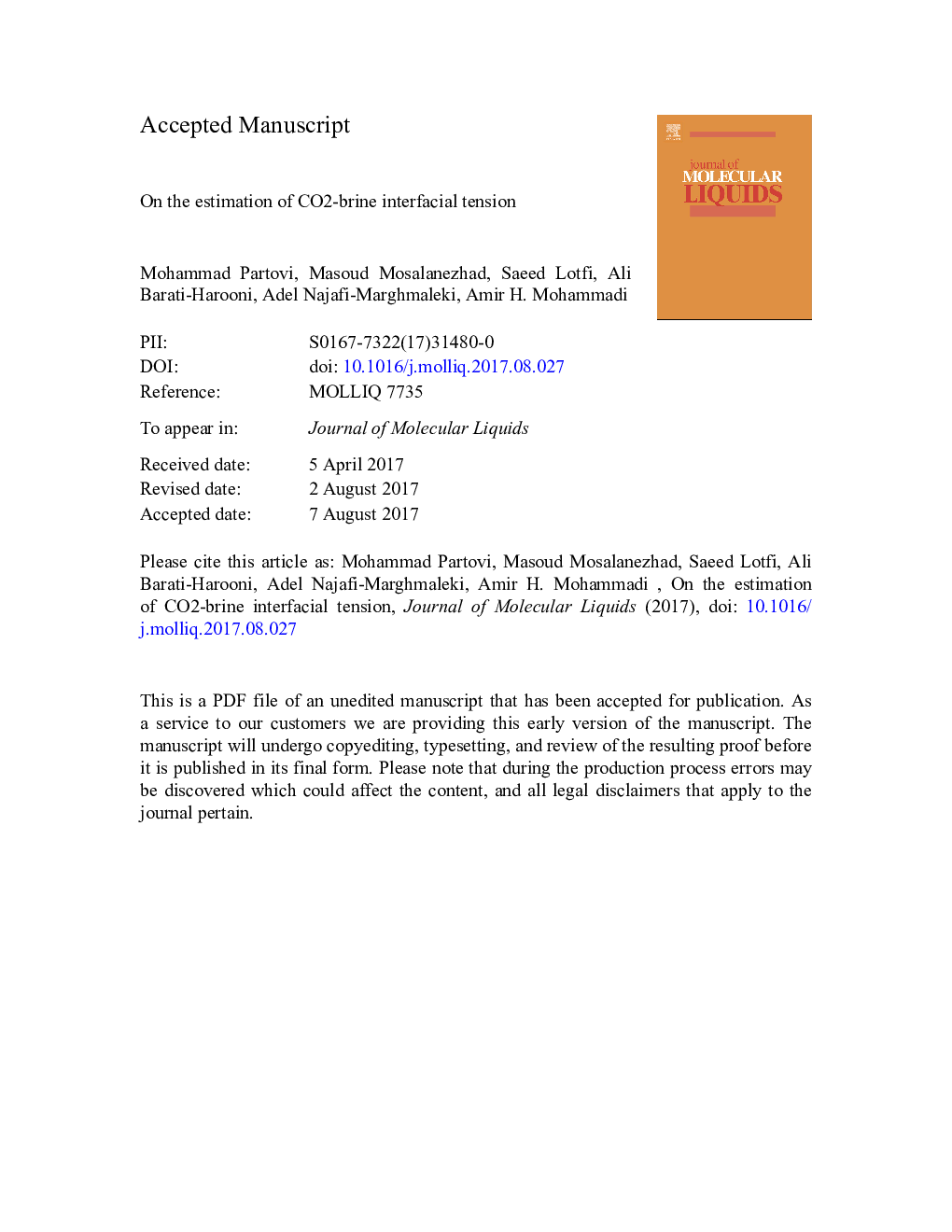| Article ID | Journal | Published Year | Pages | File Type |
|---|---|---|---|---|
| 5407977 | Journal of Molecular Liquids | 2017 | 32 Pages |
Abstract
Measurement of CO2-brine interfacial tension (IFT) in laboratory is time consuming, expensive and may exhibit various sources of errors. Hence, developing precise models for estimation of the CO2-brine IFT sounds to be greatly important. In this work, it has been attempted to study the application of two computer based models, namely radial basis function neural network optimized by particle swarm optimization method (PSO-RBF) and adaptive neuro-fuzzy inference system trained by hybrid method (Hybrid-ANFIS) for estimation of CO2-brine IFT. It is worthwhile to state that the database of this work includes 1716 CO2-brine IFT data collected from literature. The brine consists of NaCl, KCl, Na2SO4, MgCl2 or CaCl2. The performance of these models was evaluated through various statistical and graphical methods. The results of the above-mentioned models were also measured against four correlations of IFT presented in former literature works. Consequently, it was found that the aforementioned models exhibit more accurate results than empirical correlations for different systems including pure CO2-pure water, pure CO2-brine and impure CO2-water systems. Furthermore, the Hybrid-ANFIS model provides superior and most precise outcomes compared to PSO-RBF model with an overall R2 and AARD% values of 0.9892 and 1.96%, respectively.
Related Topics
Physical Sciences and Engineering
Chemistry
Physical and Theoretical Chemistry
Authors
Mohammad Partovi, Masoud Mosalanezhad, Saeed Lotfi, Ali Barati-Harooni, Adel Najafi-Marghmaleki, Amir H. Mohammadi,
